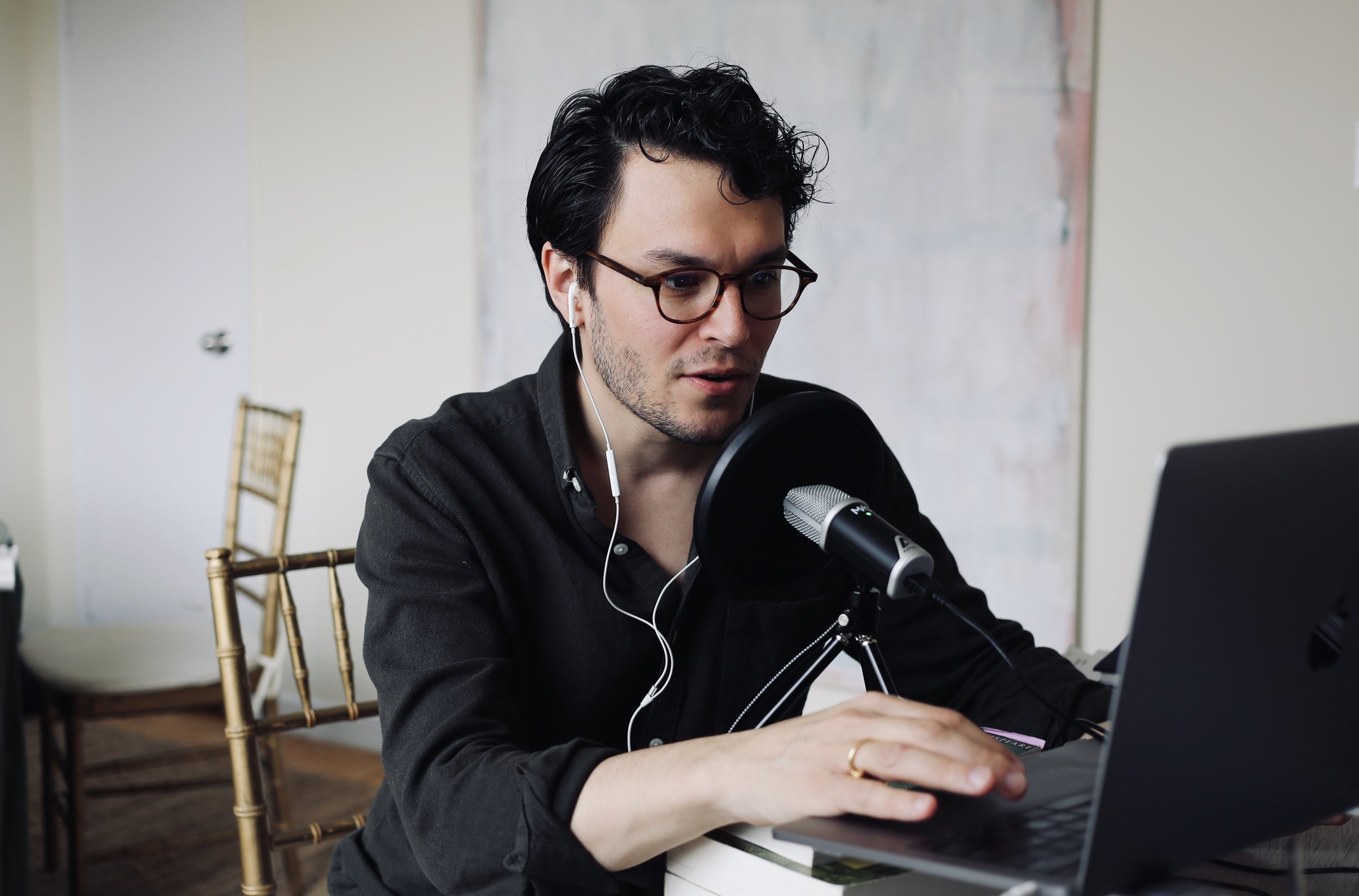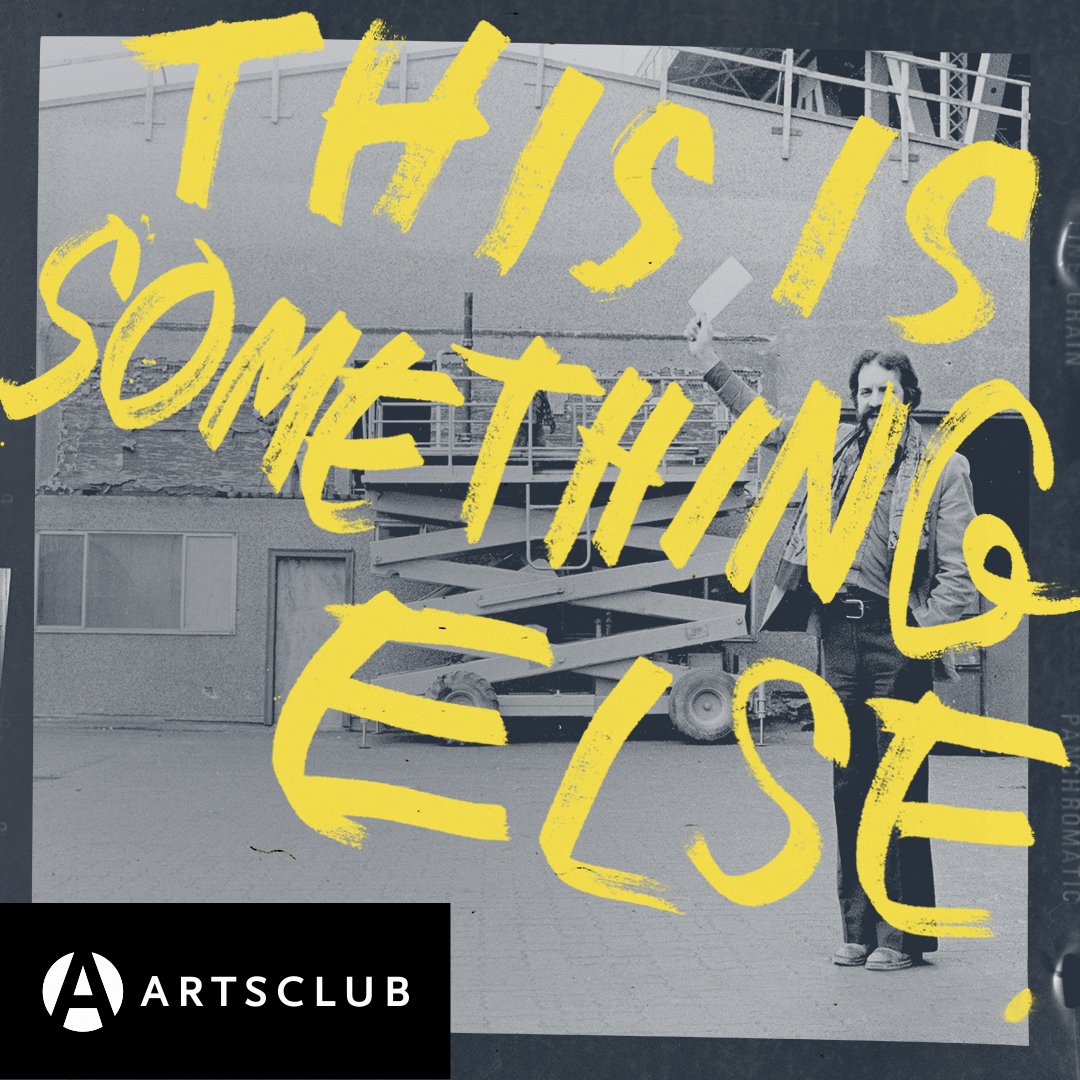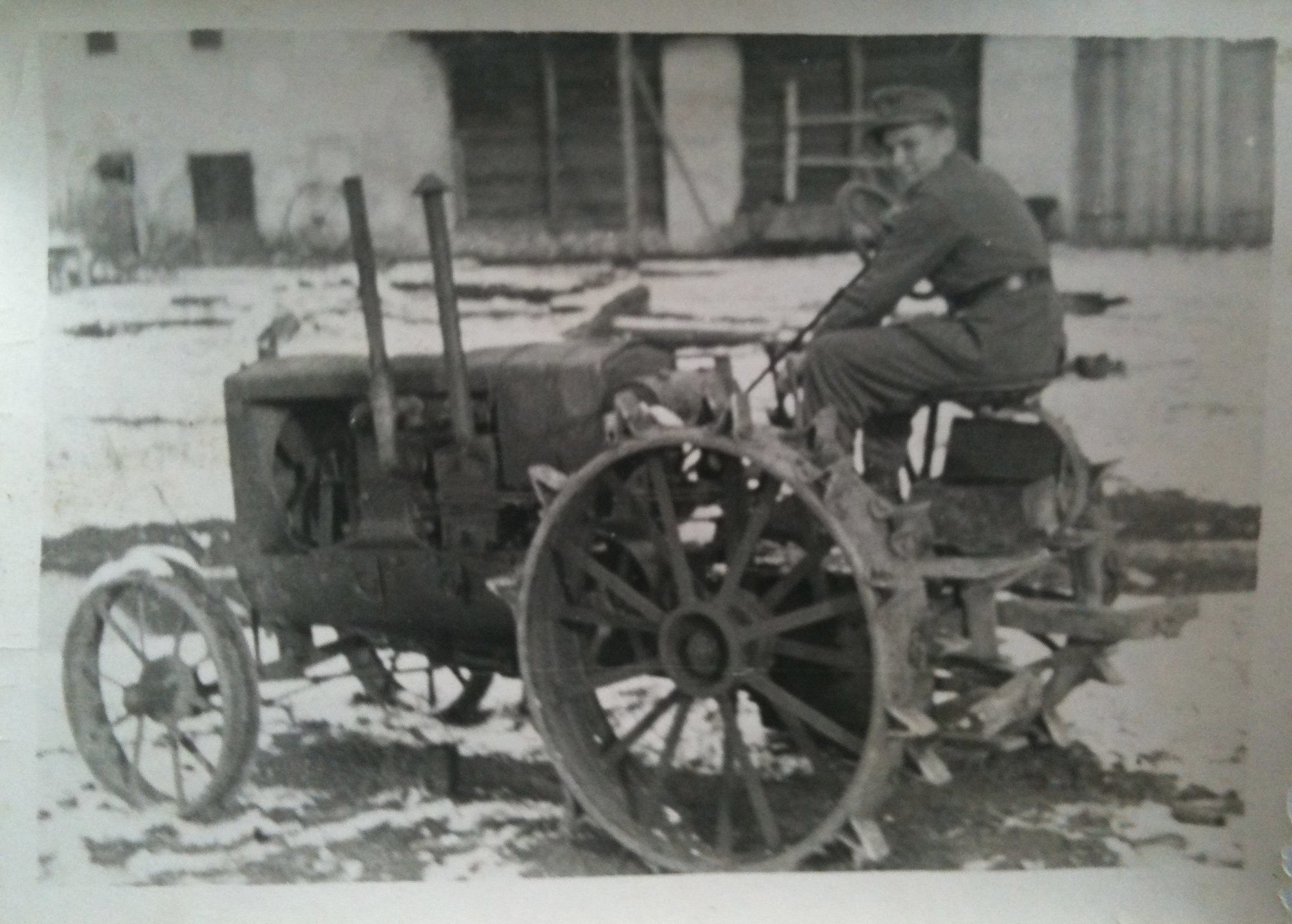The State of My Art: A Series of Career Updates from Ukrainian-Canadian Artists
By Andrew Kushnir, Theatre Artist
This pandemic era has sensitized me to windows of opportunity, feeling the ways in which things expand and appreciably contract as we co-exist with COVID. The accordion of it all. As I write this, I can’t help but think of the swath of Canadian performing artists who have just had their shows cancelled for early 2022 (some beyond) due to Omicron. My own company has had to reconsider long-held plans for the early part of the new year. This is not where we imagined ourselves to be, as a sector, and as artists in this country, after nearly two years of navigating the global health crisis.
The Shevchenko Foundation and the Ihnatowycz Family Foundation invited me to pen a reflection about what the last few years have been like as a writer, director, and actor, and to encourage artists to apply for the REACH Mentorship/Residency for the Arts – of which I’m the inaugural recipient and a big proponent. REACH is among those robust opportunities for artists to sustain their practices, a chance to stay in motion, against the odds – and moreover, to remain in relationship with others doing the same.
Over this past year and a half, I have thought a lot about how important encounters are – in art and in life. How much we make sense of the world with others. Even writing these days, I find, is an act of dialoguing with an imagined listener – sometimes with those from whom I’ve inherited ideas and ways of thinking, sometimes with a perfect stranger. In the past 20 months, I have grown more driven to share what knowledge I have, to mentor, to be mentored, to embrace process over product, to carry former practices into new ways of collaborating. To not go it alone.
Over two months in the summer of 2021, my company (Project: Humanity) ran a program we call the Proximity Lab. I directed four diverse theatre creators through the question of “What is the future of verbatim theatre?” This journalistic form of theatre, which in my practice works with original interview material to create a script, is one I’m constantly re-evaluating. I wanted to undertake this with other artists interested in the form. In the wake of recent social upheavals and reckonings and recoveries, what is the opportunity with (and imperative of) this live and in-person documentary form of storytelling wherein one works with the words of others? What can this creativity – born of encounters – provide us in such a time of flux? Our findings, as a group of practitioners, were thrilling to me. We looked at how this work can co-exist with Indigenous knowledges and ways of making (with the guidance of theatremaker Katey Wattam), how to work with so-called non-professional artists, how to step away from traditional theatre spaces to broaden access, how to apply anti-oppressive frameworks to this artform. A public report on Proximity Lab is forthcoming in 2022.
This pandemic era has also had me working on two books that will be released in the new year. Hope In A Collapsing World (University of Toronto Press) is a publication with Dr. Kathleen Gallagher – the visionary ethnographic researcher who embedded me as an artist into her study of young people and drama classrooms all over the globe (2014-19). This research was the basis of my last in-person full production, Towards Youth: a play on radical hope (spring 2019), which was premiered by Project: Humanity and Crow’s Theatre. Hope In A Collapsing World has several parts to it: Kathleen’s vivid research and analysis, then my own writing about my creative process followed by the full playscript of Towards Youth. The whole endeavour looks to young people as remarkable teachers in our midst. My second book project is co-authored with Khari Wendell McClelland, and will be published and released by Talon Books. Titled Moving the Centre: Two plays: Small Axe and Freedom Singer, this book opens up questions about how we can meet across our differences using theatre. It features two of my verbatim plays (one co-created with Khari). My hope is that these publications I’ve been working on become useful tools in the classroom. Both books echo teachings I offered in an online masterclass I taught in the fall of 2020 called Verbatim Theatre: Working with the Realness offered by ghostlight (a digital theatrical training ground); both books betray my obsession with encounter as the heartbeat of the arts and of theatre in particular.
In Spring 2021, I released my first ever podcast: This is Something Else. A commission from the Arts Club Theatre Company in Vancouver, this five-part limited series undertakes the question: Can Canadian theatre history be the stuff of a compelling investigative podcast? What’s more, I delve into how the past lives in the present (can history be considered more of a thing in motion, a verb rather than a noun?). This Is Something Else was built from over 40 in-depth interviews I did with theatre artists including Morris Panych, Ann Mortifee, Quelemia Sparrow, and Omari Newton using an online studio called Zencastr. I worked remotely in Toronto (at times creating an at-home recording studio on my bed, under a duvet) with a phenomenal creative team in BC. I explored how truly revolutionary Canadian theatre artists were in the 1960s, how the AIDS crisis of the 1980s devastated the theatre ecology, how the impacts of capitalism and real estate shape and shake our cultural landscape today. The story of how the Arts Club grew from a tiny venue in a former gospel hall into Canada’s largest urban theatre company has national reverberations. The series has had over 5,500 downloads to date and is still available for listening wherever podcasts are found. It was generously written about by the Globe and Mail and CBC.
The pandemic’s ebb and flow (and the grit of some brilliant arts administrators in this country) allowed me to do two notable in-person projects. With masks well in place, along with many other COVID protocols, I directed the graduating class of the National Theatre School in March and April 2021. A wonderful new play called Bonus Points If You Have Air Conditioning by Jena McLean had its premiere production in between waves. In October 2021, I was able to complete the circle on the show that I was about to open in March 2020 at the Citadel Theatre in Edmonton, just as the pandemic brought our part of the world to a halt. Under strict COVID policies, The Garneau Block had me on stage performing for some crowds as big as 500. Both this and Bonus Points seemed to ignite in the audience a sense of emergence, of resuming the habit of theatregoing (the community that comes with that), and the joy of sitting in the dark with strangers to engage with a story. This put wind in my own sails.
In the summer of 2020, Project: Humanity (PH) carefully examined the needs of the communities we work with. By that point, the pandemic had suspended many of the support networks that youth-on-the-margins in shelters relied upon (a demographic that we have long engaged with through our drama program). Artists in our city were languishing as their work evaporated due to venue closures and gathering restrictions. We imagined a way for these two struggling communities to find strength by leaning into one another. Our PH 1:1 program has now paired 69 youth with artist mentors for three-month partnerships in an arts discipline of the youth’s choosing (be it creative writing, music, dance, textiles, photography, painting, mask work, etc.). Youth have thrived in this customized, online engagement: they report feeling less isolated, having accrued new skills and forms of self-expression. Artists have come into meaningful employment and discovered how their work is essential for our collective, social recovery. In December 2021, PH partnered with the Propeller Art Gallery in Toronto to showcase some of the outputs of this ongoing program.
Running alongside all of this, I have been developing The Division – the project that the REACH Residency for the Arts selected in 2018. I can’t help but feel all the connections between my other projects and this particularly personal work (be it examining history, the potential of verbatim theatre, the power of encounter, mentorship and proximity). The Division explores my late grandfather’s late teens – and particularly his months as a courier in the Divizia (1st Division of the Ukrainian National Army, 14th Waffen Grenadier Division of the SS – 1st Galician) – and his eventual prominence as a celebrated Canadian watchmaker. When he died at 91 years of age in 2018, I inherited one of his timepieces: the Zenith Extra RR56 – the last railway grade pocket watch to be made for North American rail and designed by my dyido. I also inherited many questions about where he came from, and how he came to live in Canada.
With REACH funding, over 29 days in November 2019, in what now feels like an impossible journey, I carried my grandfather’s timepiece through Paris, Zurich, Le Locle, Lviv, Brody, Bozhykiv, Berezhany, Kyiv, Zaporizhia, Dnipro, Krakow, Bologna, Rimini, Bellaria, Barletta, Bari, London, Norwich, Liverpool, Maghull and back to Canada. This amounted to 13 flights, 12 train rides, and a treacherous car rental on Ukrainian village roads. The Zenith Extra RR56 pocket watch was held (and photographed) in the hands of dozens of people as I asked them about time and family. This journey produced 225 audio recordings, including 39 major interviews. I was searching for my dyido, retracing his exact trek from Western Ukraine to Canada, and with that, grappling with the past through the people I met.
This research – which fatefully occurred at a time when one could travel with extraordinary ease (as it turns out) – has left me with an exceptional treasure trove of encounters and learnings. I’m in the process of moving this into three iterations: a play, a podcast, and a book (in that order). My residency continues with Tarragon Theatre in Toronto, albeit under new leadership now. Former artistic director Richard Rose (who directed my Ukrainian-Canadian drama/fantasia Wormwood in 2015) retired last year, and Mike Payette (formerly of Geordie Productions in Montreal) now helms the company. I had the great pleasure of being directed by Mike this past month for a Factory Theatre radio play which will be released in the new year.
My aspiration for the first half of 2022 is to keep advancing my first draft of The Division so as to catch the next sizable window of opportunity for in-person development. Moving a draft into a workshop setting with other collaborators (performers, designers) has always been a point of process for me, and one that has been challenged on a recurring basis during this pandemic era. I’m trusting that when the time is right, The Division will bring together theatre artists in a room to sit in big questions, to immerse ourselves in the words and insights and questions I received in my travels (through time and place). I certainly expect that the trials of the past two years will inform this undertaking. I also foresee the encounters and stories of the past being things that may revivify us and connect us in the now, right at the moment we need it.
Andrew Kushnir directing the graduating class at NTS in Bonus Points If You Have Air Conditioning by Jena McLean, April 2021.
Production image from Bonus Points.
Graphic for Andrew Kushnir’s podcast This Is Something Else.
Andrew Kushnir working on his podcast.
Andrew Kushnir’s grandfather's timepiece, in his home village in Western Ukraine.
Andrew Kushnir’s dyido (grandfather) as a teenager.







